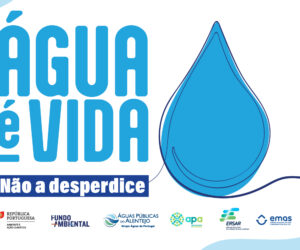 Bloco de Esquerda criticized the Alentejo Regional Water Efficiency Plan, which is in public consultation, for considering that “it arrives late” and “does not make the necessary choices” for the region to face the drought.
Bloco de Esquerda criticized the Alentejo Regional Water Efficiency Plan, which is in public consultation, for considering that “it arrives late” and “does not make the necessary choices” for the region to face the drought.
The blockers stated that the document even starts from “a realistic diagnosis”, but foresees “a set of measures that are inappropriate and subordinated to the great interests of intensive agriculture”.
“The impact of climate change in Alentejo greatly worsens the water scarcity scenario, with increasingly prolonged periods of drought”, alerted the party, noting that the plan recognizes the need to adopt measures.
According to BE, the plan considers it essential to change behaviors, carrying out effective water resources planning, increasing water efficiency and the use of water from alternative sources and reducing natural water consumption.
On the other hand, the party led by Mariana Mortágua stressed that “water desalination or the creation of transfers to the Sado or Guadiana basin without reducing the area of intensive and super-intensive crops will only mean prolonging an unsustainable and harmful form of agricultural production”.
“It is illustrative of the maintenance of an unsustainable paradigm” the appointment by the Government of an administrative committee of the Mira Beneficiaries Association that includes businessman Filipe de Botton as a representative of the beneficiaries of the Mira Hydroagricultural Development, said.
According to BE, businessman Filipe de Botton is “one of the faces of intensive greenhouse agriculture and protagonist of conflicts with these same beneficiaries due to abusive use of water resources”.
Considering that the Mira desalination plant foreseen in the plan aims to “continue agricultural overexploitation in greenhouses”, blockers said that the Government “does not want to promote more sustainable and diversified agriculture”.
The Alentejo Regional Water Efficiency Plan, with “about 70 measures” to reinforce the territory’s resilience, in a total investment of “almost 1.000 million euros ", was approved by the Council of Minister held, in June, Evora.
With this plan, the Government estimates to reduce water consumption in the urban and tourist sector by around 10%, corresponding to approximately 17 hectometres, and, in collective hydro-agricultural developments, at the 12%, next to 29 hectometres.

























